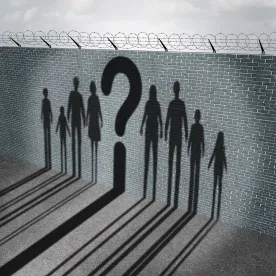On January 27th, President Trump signed an Executive Order titled “Protecting the Nation from Foreign Terrorist Entry into the United States” immediately suspending the entry of citizens from Syria, Iran, Libya, Somalia, Yemen, Iraq, and Sudan, as well as the entry of new refugees. Employers with immigrant employees in the affected countries are encouraged to suspend work-related travel into the U.S. for the time being, as they may be unable to enter the U.S. Where possible, immigrant employees currently in the U.S. from the affected countries, even those with valid immigration documentation, such as H-1B visas, should avoid international travel for the next 90 days unless there is more clear indication of enforcement activities, a change to the Executive Order, or court-related clarity.
Who Does The Executive Order Impact?
-
Foreign nationals from the seven affected countries will likely be temporarily prevented from entry at U.S. airports and ports of entry by U.S. Customs and Border Protection for a 90-day period. Similarly, U.S. Embassies abroad are expected to suspend the issuance of temporary nonimmigrant visas and immigrant visas to foreign nationals of the seven countries. The issuance of visas or entry into the U.S. of dual citizens of affected countries will also likely be temporarily suspended. To prevent unnecessary travel, the Department of Homeland Security (DHS) is working with airlines to prevent the selected travelers from boarding international flights. Because the Executive Order also orders DHS to suspend “visas and other immigration benefits” to the citizens of the affected countries, immigrant employees in the U.S. seeking extensions of existing visas through U.S. Citizenship and Immigration Services may potentially be impacted.
-
U.S. permanent residents who are citizens of the affected countries will be allowed to enter the U.S. based on recent updates issued by White House Chief of Staff Reince Priebus and DHS. Initially, the Executive Order only permitted the entry of U.S. permanent residents “when in the national interest” on a case-by-case basis. On January 29th, DHS clarified that lawful permanent resident status will be a dispositive factor in the case-by-case determinations, absent derogatory information indicating a serious threat to public safety and welfare.
-
Newly admitted refugees from any country will be suspended for a 120-day period under the Executive Order. Current employees under refugee status should be permitted to travel internationally but may face additional scrutiny at Customs if they are from the seven affected countries. The entry of new Syrian refugees is indefinitely suspended.
-
Immigrants seeking renewal of their visas through the Visa Interview Waiver Program (VIWP). Previously, the VIWP allowed visitors and other visa holders to renew visas without a consular interview if the immigrant was applying for the same visa category within 12 months of the initial visa expiration. Applicants could simply drop off their application, passport and payment and obtain a renewed visa stamp without undergoing a visa interview. The Executive Order immediately suspends the VIWP and most nonimmigrant visa applicants will be required to attend an in-person interview to renew their visas. The VIWP is separate from the Visa Waiver Program which allows citizens of 38 countries to enter the U.S. as visitors for 90 days without a visa.
Over the course of the next 30 to 120 days, the Department of State and DHS will provide reports to the President regarding the public-security concerns, and we will provide additional alerts as the policy evolves.



 />i
/>i

